PROTECT YOUR DNA WITH QUANTUM TECHNOLOGY
Orgo-Life the new way to the future Advertising by AdpathwayWindow box planters are a classic way to add charm, color, and life to the exterior of a home. They also create a link between the indoor and outdoor spaces by placing them in the spaces that connect the two. With their position just beneath windows, they bring the garden up to eye level. They make it possible for us to see flowers, herbs, or foliage from the outside and inside.
These planters act as natural focal points, enhancing curb appeal as well. You can use them for seasonal displays that change throughout the year. Their raised placement makes them accessible and easy to maintain, too.
Beyond their aesthetic value, window box planters are highly versatile. You can plant edible herbs such as basil, parsley, or thyme for convenient kitchen use. They’re eye-catching when filled with cascading flowers for a lush, overflowing effect. Because they’re contained, they’re useful even for those with limited space, like apartment dwellers.
Window boxes also provide an outlet for creative expression. Gardeners can tailor their displays to match their home’s style and the season. Your window boxes can act as a decoration for your home during different seasons. As we move into autumn, here are some wonderful, seasonal fall window box plants that will take you right into winter.

Got the Blues Pansy Seeds
Double Blend Sweet William

Double Blend Sweet William Seeds
Zeolights Calendula (Pot Marigold)

Zeolights Calendula (Pot Marigold) Seeds
Gourds and Ornamental Kale
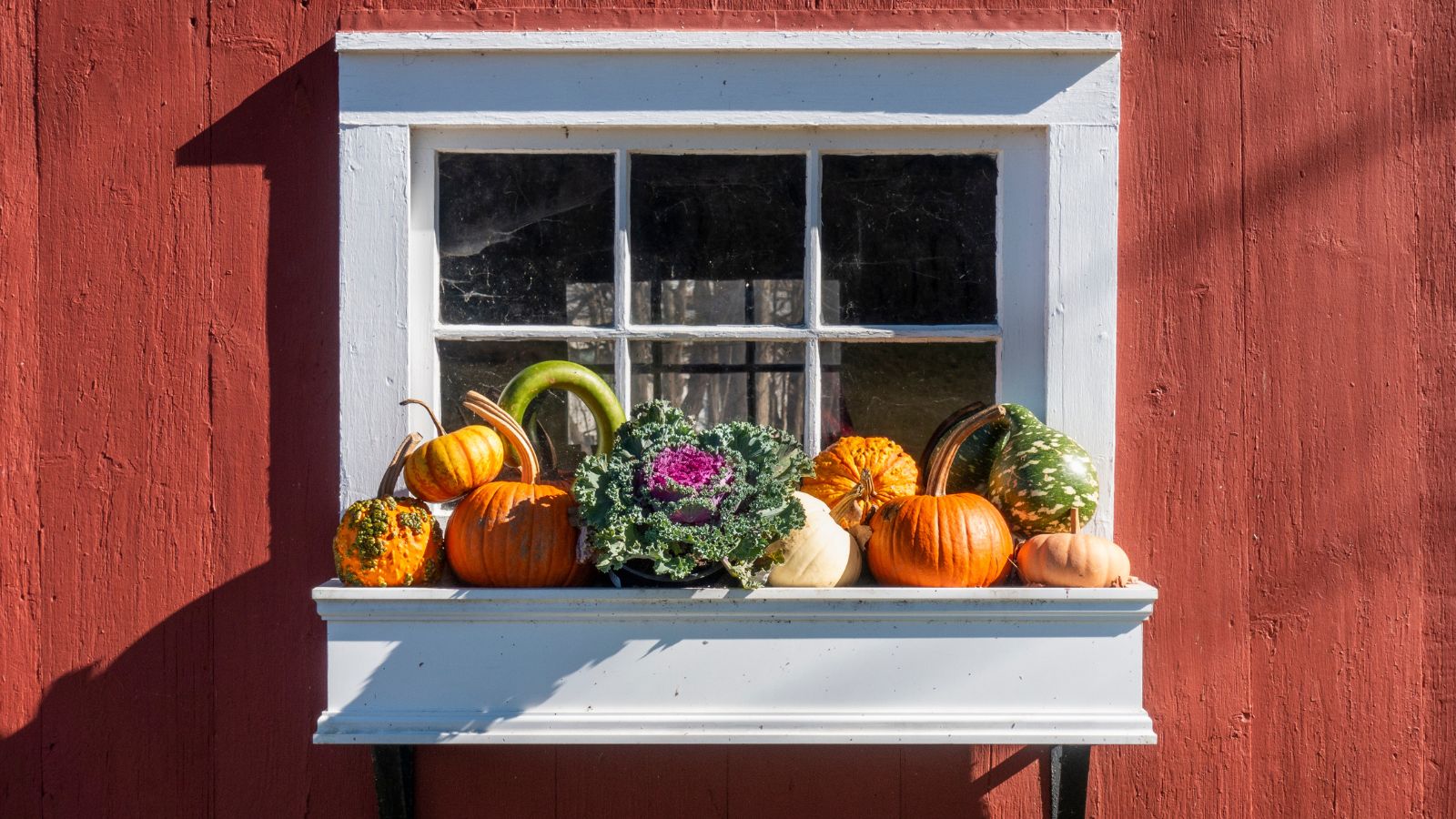 Gourds are perfect for fall arrangements.
Gourds are perfect for fall arrangements. If you’ve spent most of the summer watching gourds and pumpkins grow in your garden, it’s just about time for picking them. What better spot to display those pretty pumpkins than in your window boxes?
Gourds and pumpkins (and even some winter squash) will last a long time after harvesting, especially once the weather cools down. As it gets colder, they will be up against the house and typically beneath a bit of cover. This will protect them in early frosts, so they don’t rot if it warms up again.
Add some beautiful, ornamental kale to those boxes for interesting texture. These cool cruciferous plants aren’t meant for eating, though they are edible.
They don’t usually taste as good as their counterparts in the veggie garden. They’re bred for looks, and they look really wonderful mixed with those autumnal gourds and pumpkins. They’re also highly cold-tolerant and will look nice well into the colder months.

Pansies, Mums, and Ornamental Grasses
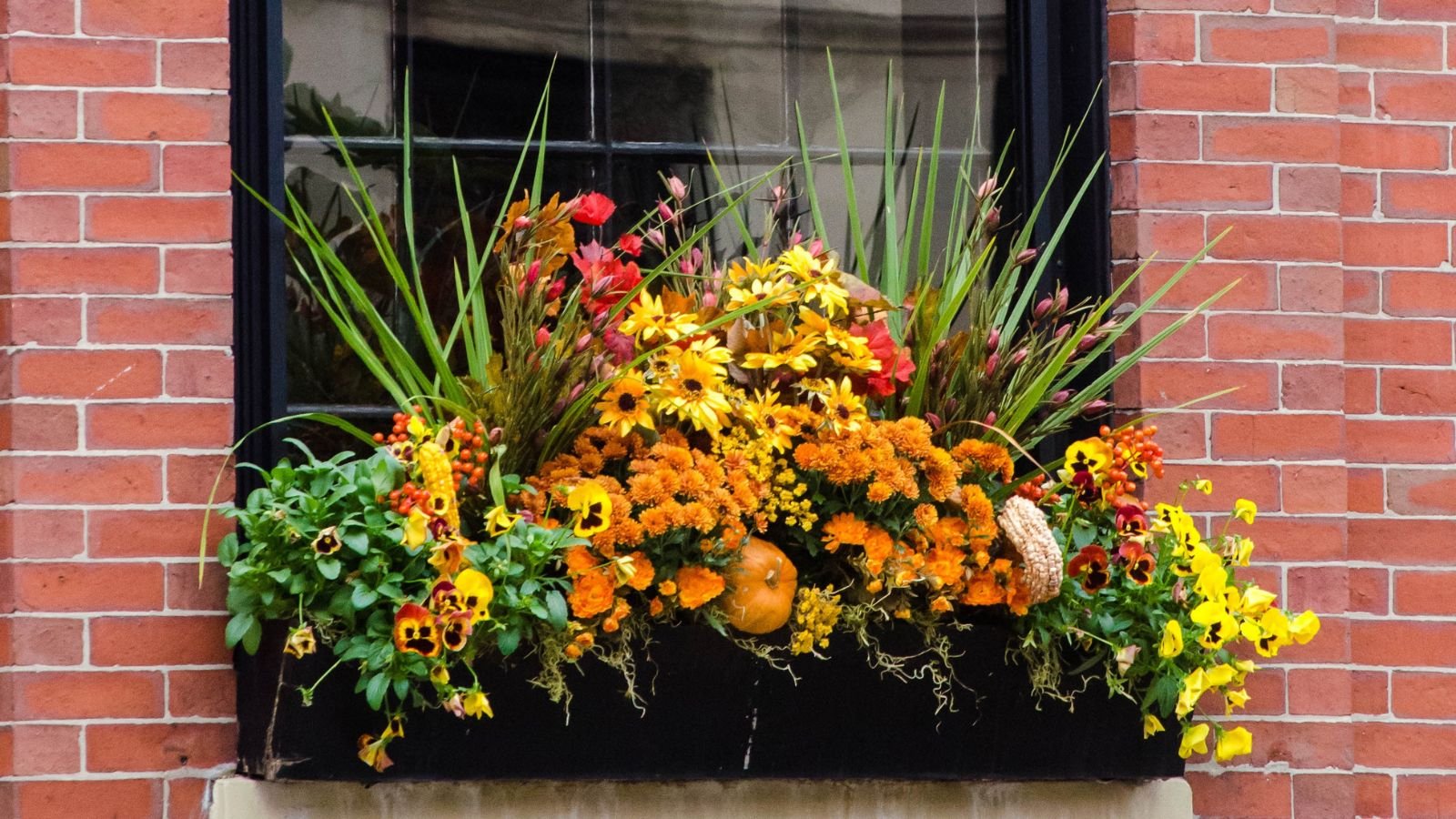 Choose warm-toned varieties to match the fall season.
Choose warm-toned varieties to match the fall season. Create a cornucopia of color with this striking and heavily textured combination. Mums are a classic fall flower that comes in all the right colors. If you need to add pops of orange, red, or gold, you can’t go wrong with these fall window box plants.
Mums are somewhat frost-tolerant, so in warmer climates, these should last right up to the beginning of winter. A hard freeze will kill off the flowers, but you can put them in the ground in spring, and they will bloom again next fall.
Pansies make a great complement to any fall window box planting. The rainbow of colors and cheerful little facelike flowers make these charming and whimsical. They’re edible, make lovely garnish on holiday tables, and they are quite frost-tolerant. They will even survive a freeze, though temperatures below 25°F (-4°C) will commonly kill off the foliage.
Add some ornamental grasses to this combination to add vertical movement and interesting texture. Many grasses are frost-tolerant, and several that are not have interesting seed pods that look beautiful when they turn brown and dry.
This combination of fall window box plants is always a crowd pleaser. You can throw in other cool-weather flowers if you like, as well.
Dianthus and Calendula
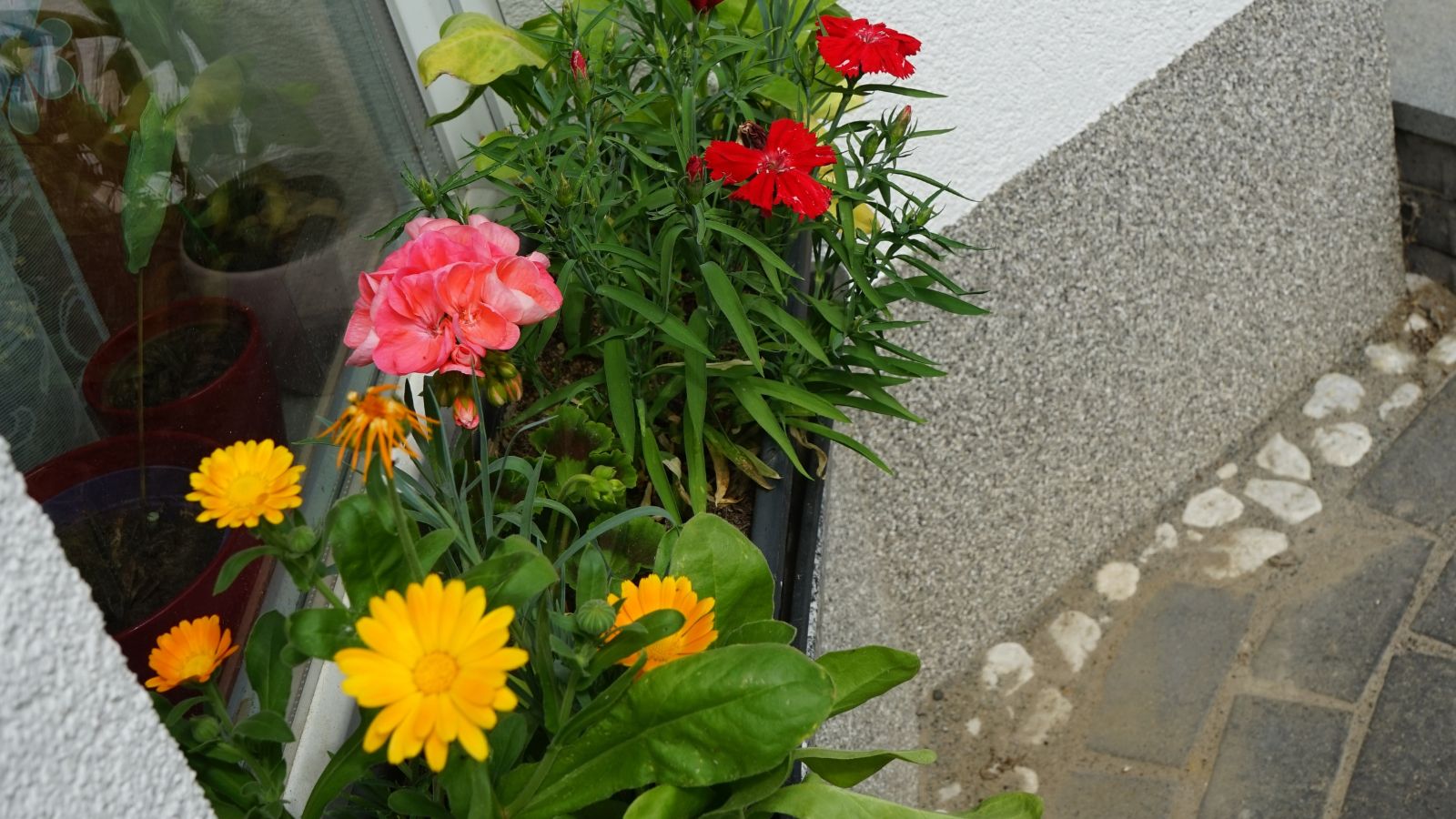 These frost-tolerant flowers don’t mind the cold.
These frost-tolerant flowers don’t mind the cold. This cheerful combination of fall window box plants is a great way to keep something green and fresh in your garden. Calendula is a great cool-weather flower that can survive down to about 26°F (-3°C). A hard freeze will kill them, but if you cover them, they should last a long time (even in cooler climates).
Dianthus is another frost-tolerant plant that will handle temperatures as low as 28°F (-2°C). They may also survive a hard freeze with some protection. This makes these two good neighbors. They also come in colors that complement one another.
Calendula is a warm colored flower in shades of yellow, orange, and sometimes bronze. Dianthus flowers tend to lean in a cooler direction in shades of blue-red and pink. Many varieties of dianthus are fragrant, with some that have a scent similar to jasmine.

Snapdragons and Cypress
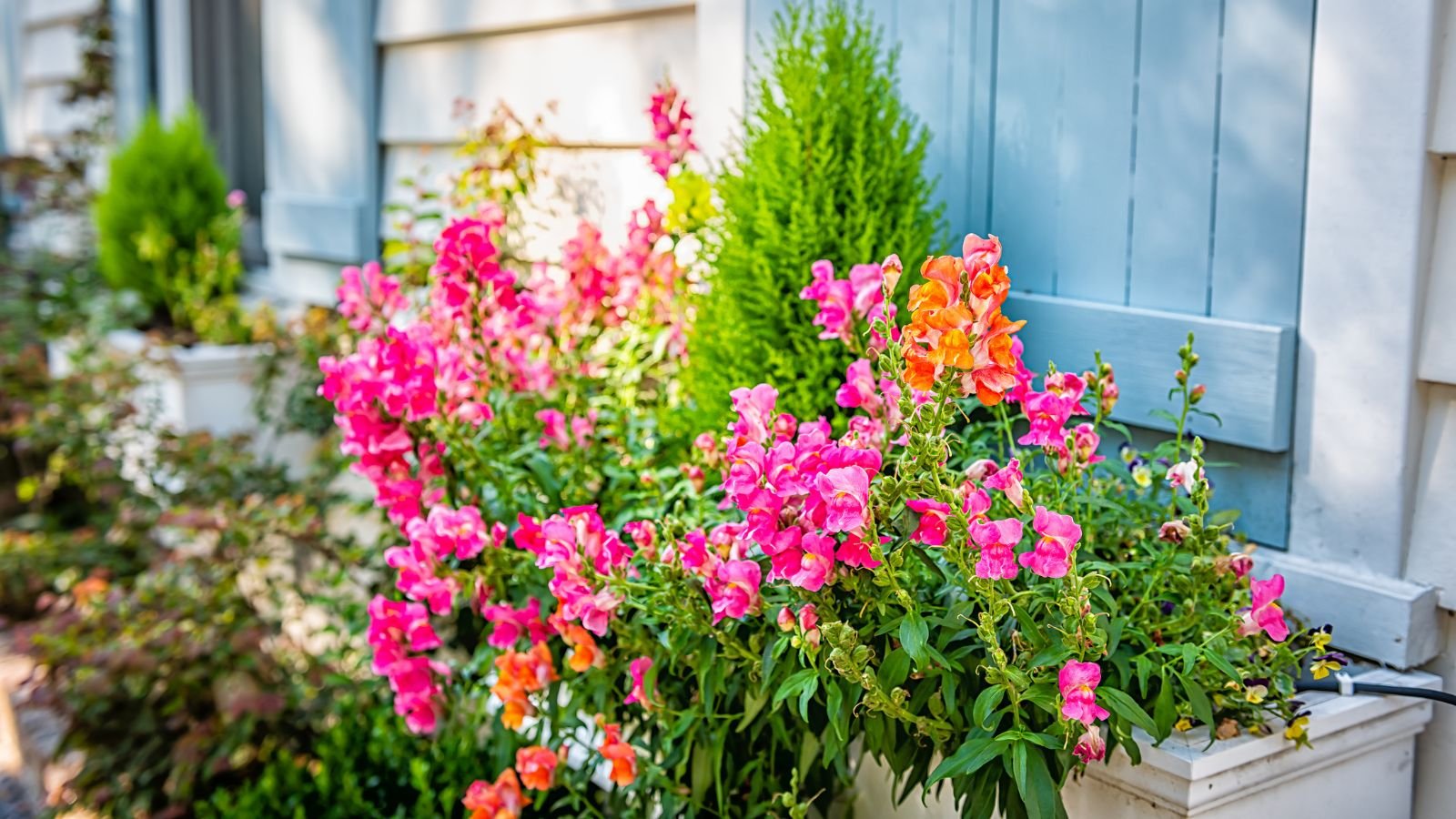 Enjoy a colorful display of flowers for months.
Enjoy a colorful display of flowers for months. These fall window box plants will take you all the way to spring in warmer climates. North of zone 8, you might not make it, but this is a nice, frost-tolerant pairing that will look good for months. This combo of snapdragons and cypress is just perfect for your fall window boxes.
Snapdragons are quite frost-tolerant. Here in zone 9, they are evergreen and bloom far into the fall, resuming in early spring after a pause for the coldest months. North of here, they will remain green for a long period. I’ve seen them bounce back after a covering of snow sat on them for several days!
The cypress is a nice choice for the center of this arrangement because its shape echoes that of a Christmas tree. You don’t have to choose cypress; in fact, in cooler climates, you might want to opt for something more cold-tolerant. Juniper and arborvitae are good options.
Window Herb Garden
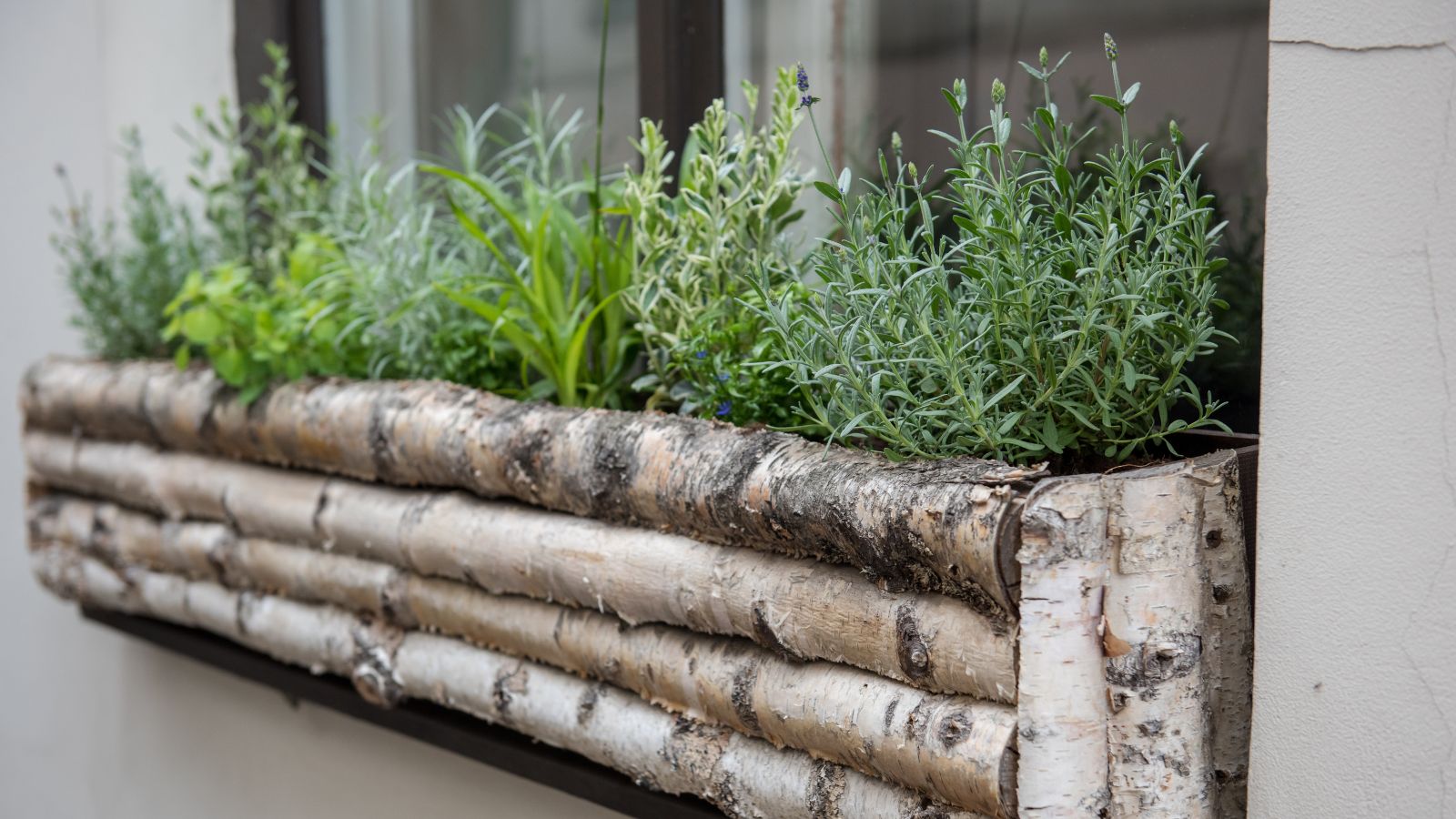 Herbs are ideal window box plants for any season.
Herbs are ideal window box plants for any season. If you have a window box in your kitchen window, you can use it in the fall or any time to plant a small herb garden. Many herbs are not just frost-tolerant, they’re evergreen. Rosemary is a nice choice, as it has a piney appearance that works nicely with holiday decorations.
Other evergreen herbs include sage, thyme, winter savory, oregano, and lavender. A combination of these different plants creates a fall window box full of texture. Different shades of green and sometimes white or purple, and different leaf sizes and shapes, add lots of variance.
A bonus to these fall window box plants is that they’re not just aesthetically pleasing. They’re also practical. You’ll love having fresh herbs for all of those holiday meals, soups, and stews that we love during the cooler months.
Frost-Tolerant Medley
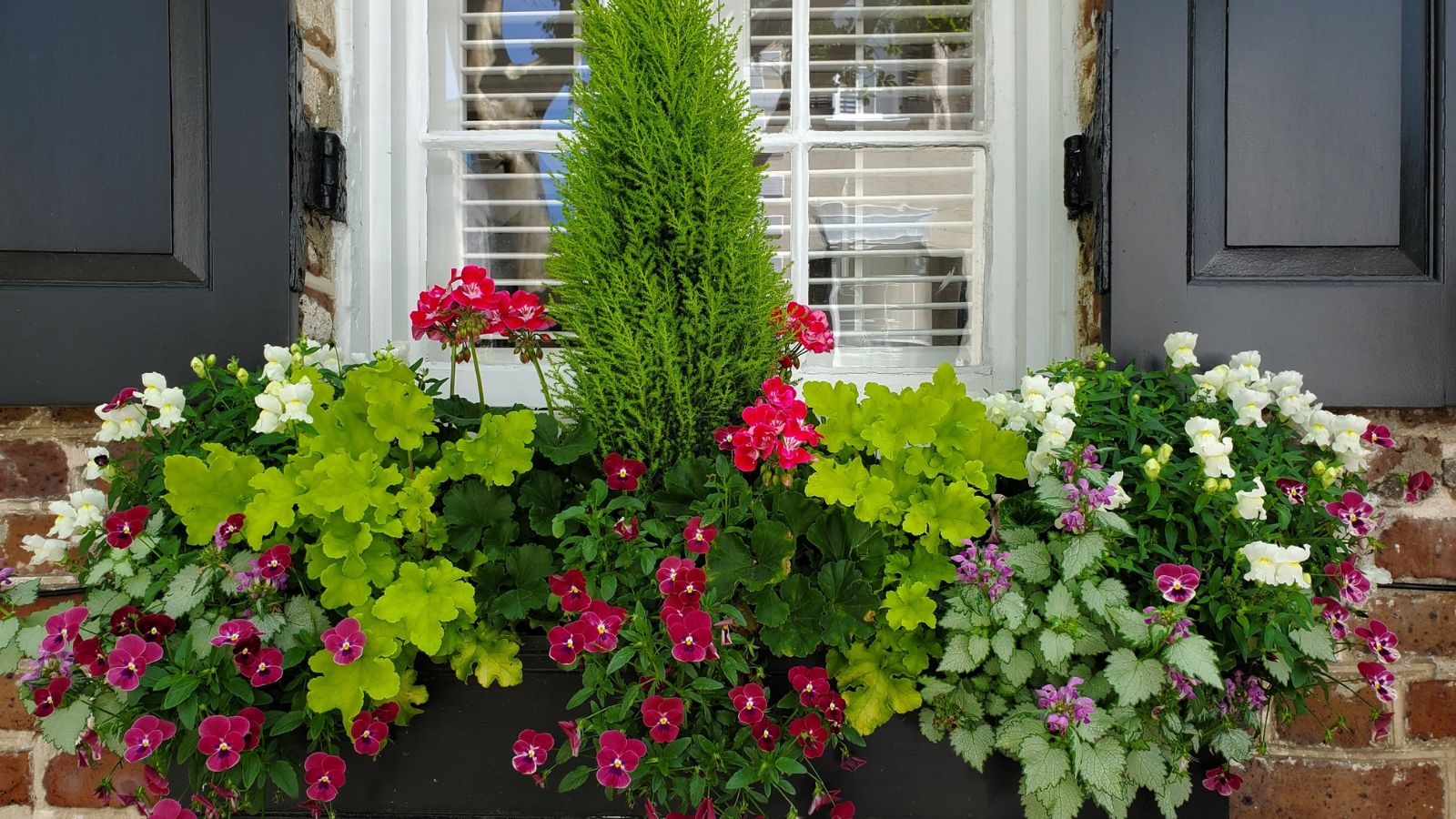 Don’t forget fall foliage favorites when choosing window box plants.
Don’t forget fall foliage favorites when choosing window box plants. This pretty fall window box is full of frost-tolerant plants that are perfect for taking your planter into the cold months. This mix of evergreens with flowering annuals and perennials is cheerful, colorful, and charming.
While those geraniums won’t last through a frost, they do enjoy and flourish in cool weather. They’re great for those pleasant, in-between months like September and October.
You won’t have to worry about this combo looking bare when those geraniums fade. Just fill up that window box with other frost-tolerant flowers. Here, pansies and snapdragons act as both filler and spiller. The white snapdragons go with everything, and the red pansies are festive and beautiful.
Include some huechera to frost-tolerant foliage. You won’t even notice when the geranium leaves die back. There are tons of wonderful frost-tolerant flowers and foliage that will take you from fall to winter beautifully.
Hardy Succulents
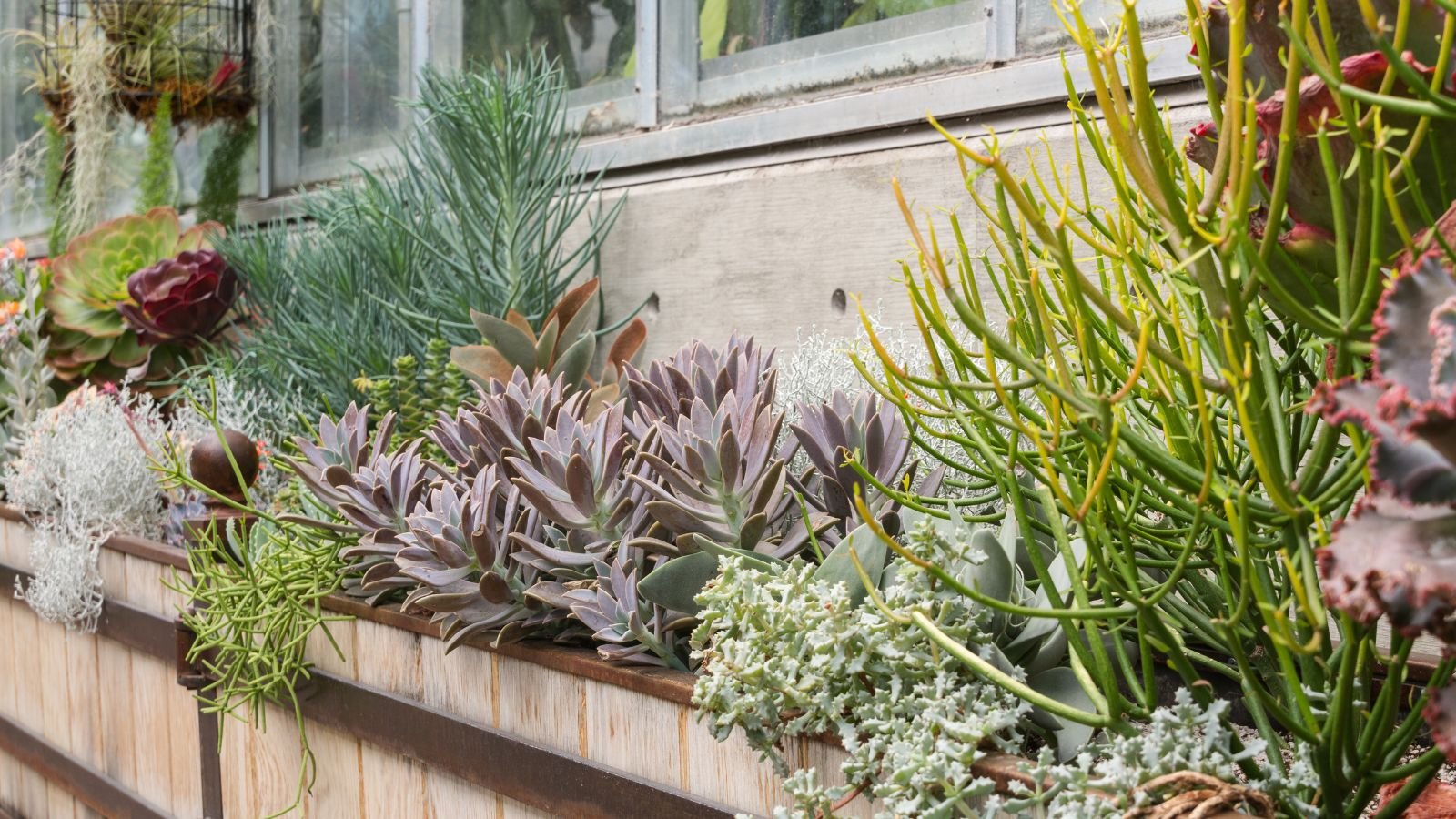 Hardy succulents look stunning in winter.
Hardy succulents look stunning in winter. Succulents are great fall window box plants that also work any time of year. They’re particularly useful in windows that are slightly out of reach or difficult to water. There are a surprising number of cold-tolerant succulents that you can leave outside through the fall and even into the winter months.
Some varieties of pachyveria are hardy down to 14°F (-10°C), as are varieties of sempervivum, and many types of sedum. Some sedums are fine all the way down to -22°F (-30°C)! Others, such as graptopetalum, some types of sempervivum, and orostachys, tolerate subzero temperatures.
Many of these succulents have color-shifting habits that intensify with cold weather. You can create an entire arrangement that will blush to shades of pink, purple, and red as the thermometer drops!


 1 day ago
24
1 day ago
24

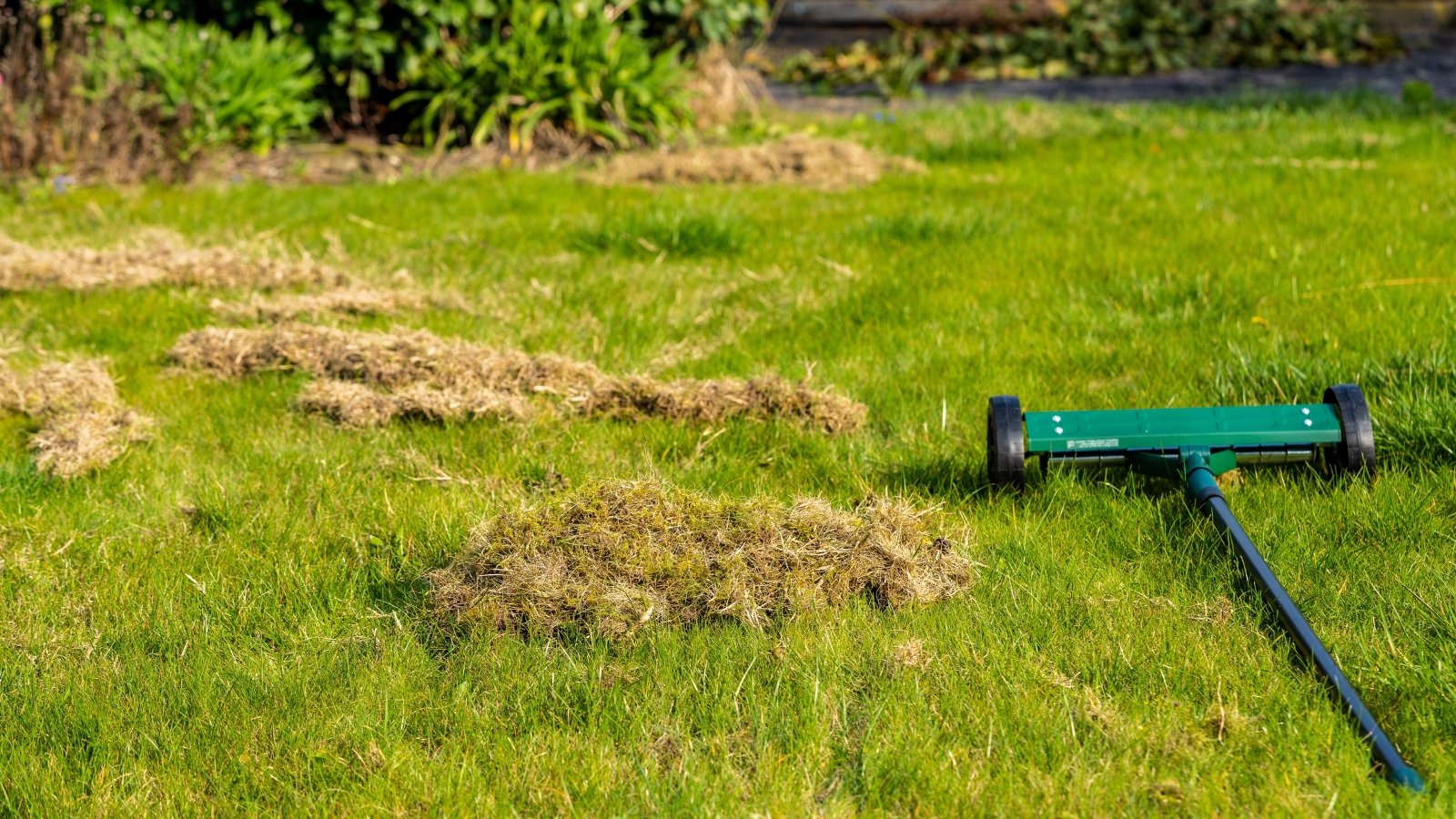




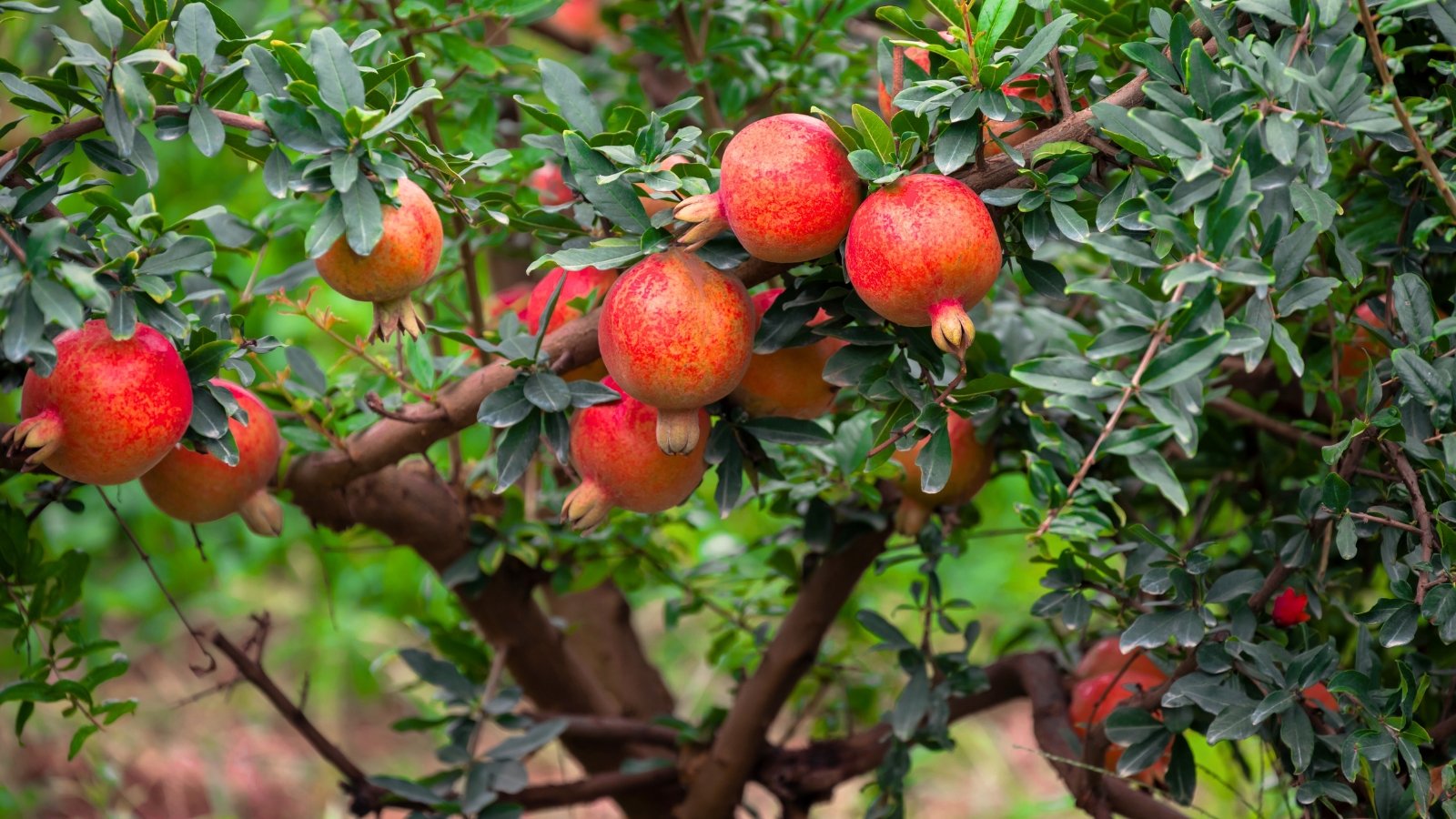














 English (US) ·
English (US) ·  French (CA) ·
French (CA) ·